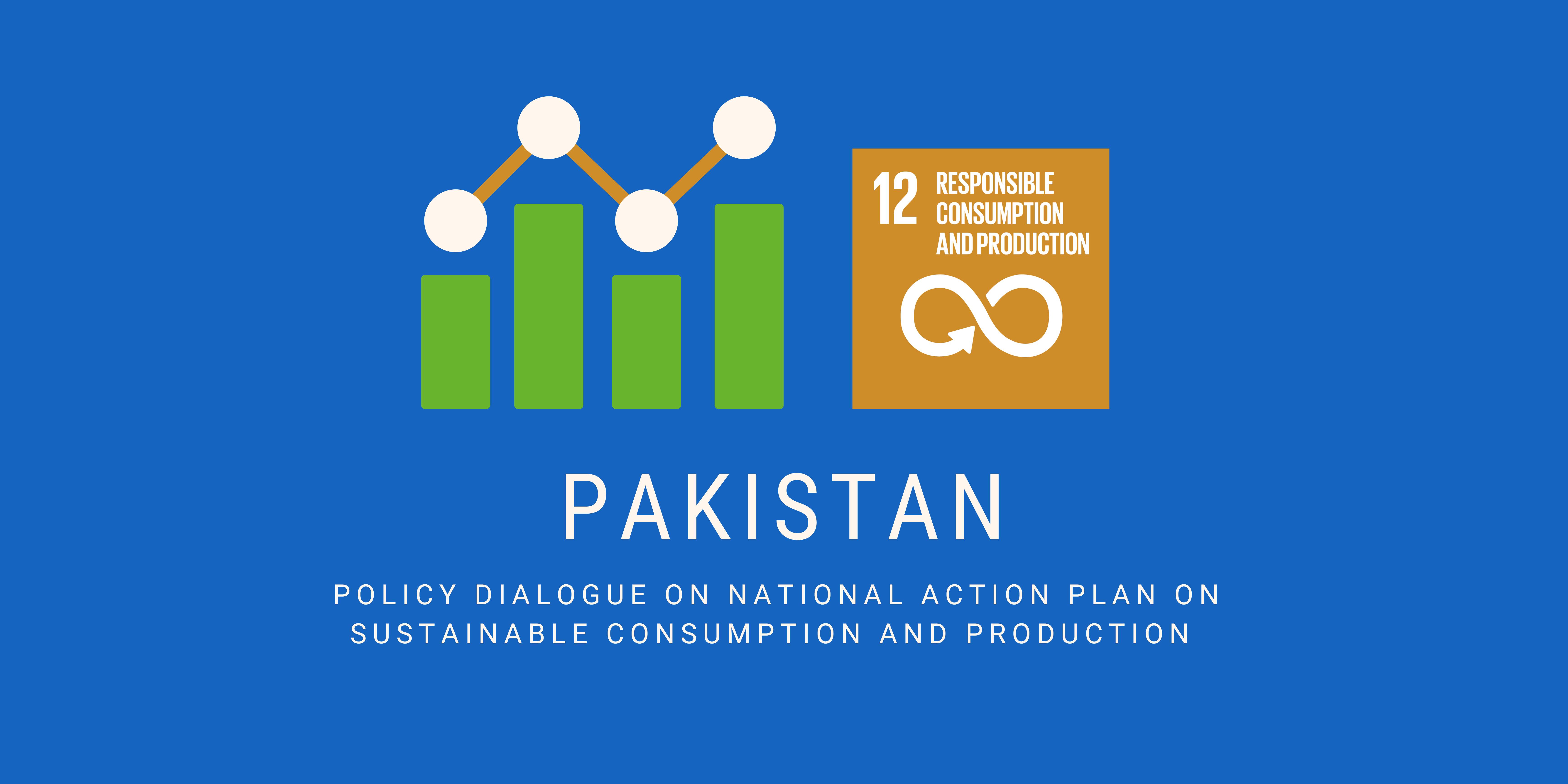
Pakistan committed to the 2030 Agenda for Sustainable Development right from its inception, in 2015. In February 2016, it became the first country in the world to adopt the Sustainable Development Goals (SDGs) as part of its national development agenda through a National Assembly Resolution.
Although growth and social development should go side by side, growth in Pakistan has not contributed to balanced social development in recent decades, primarily due to high levels of population growth. As a result, many of Pakistan’s social indicators do not match significant levels of economic growth. This makes the Sustainable Development Goals a key priority for the country, particularly SDG 12 on Responsible Consumption and Production, which entails promoting resource and energy efficiency, sustainable infrastructure and jobs that provide access to basic services, decent work and a better quality of life for everyone without compromising environmental sustainability.
The Government of Pakistan is taking tangible actions to restore ecosystems to replenish nature and its resources and to promote a sustainable consumption and production (SCP) mechanism. The country has developed its National Action Plan on Sustainable Consumption and Production (NAP-SCP) to mainstream SCP-related policies into the overall sustainable development framework. The NAP-SCP is an overarching document which is being implemented by multiple stakeholders including respective ministries, departments, and provincial governments. To ensure effective implementation at the federal level and to oversee the progress of NAP-SCP, the already notified ‘National Climate Change Policy Implementation Committee’ will also serve as the ‘NAP for SCP Implementation Committee’. The task of the NAP-SCP committee is to regularly monitor, evaluate, and update the NAP for SCP after every five years.

On 29 March 2022, the Policy Dialogue on NAP-SCP took place in Islamabad. Organised by the Sustainable Development Policy Institute (SDPI), with support from the EU funded SWITCH-Asia Regional Policy Advocacy Component (RPAC), during this event, experts identified current challenges in collecting data at both local and national levels when monitoring overconsumption trends and taking appropriate actions to reduce carbon emissions in the country. A total of 20 participants attended the dialogue, including stakeholders from the Ministry of Climate Change, senior representatives from the European Union Delegation to Pakistan, representatives from the Water and Power Development Authority (WAPDA), the National Agricultural Research Council (NARC), Pakistan National Accreditation Council (PNAC), the United Nations Children's Fund (UNICEF) and experts from academia and other institutions.
In his opening remarks, Dr. Stephen Langrell, First Counselor, Head Rural Development & Economic Cooperation, European Union Delegation to Pakistan, firmly expressed the importance of collecting accurate data for better decision-making, reduction of Pakistan’s carbon footprint and improved sustainable economic growth. Dr. Langrell also presented the support the EU SWITCH-Asia programme is providing to the Government of Pakistan in the field of sustainable housing and building, as well as waste management and plastics.
Environmental sustainability and building back better after COVID-19 are global goals that Pakistan, along with other countries share with the EU. In this regard, there is a need to work together towards a green transition. The EU will assist the Government of Pakistan in this process, said Dr. Langrell.
Dr. Saima Shafique, from the Ministry of Climate Change, reported that major challenges to the effective implementation of the NAP-SCP include limited coordination with stakeholders and partners, unavailability of data (particularly at the grassroots level), issues in the institutional framework, resource inefficiency, and resource constraints. However, through recent support from WWF Pakistan, the Ministry of Climate Change was able to develop a pilot dashboard to map data for SDG 12.2, 12.4 and 12.6 targets reporting. Furthermore, the clean green Pakistan index is also a useful tool for capturing data related to resource efficiency. And, to map SCP in the textile sector, the Ministry has also developed a dashboard based on the idea of creating a competition among private sector stakeholders on greening the industry and improving its sustainability.
Dr. Shafqat Munir, Research Fellow Resilient Development, Sustainable Development Policy Institute (SDPI), presented key findings from an ongoing study that is being conducted in partnership with the EU SWITCH-Asia RPAC implemented by UNEP, reviewing the implementation status of the NAP-SCP.
Findings from this study show that the policy landscape exists in Pakistan, but, in terms of implementation of the NAP-SCP, the country has to move fast on practical steps forward to make consumption and production sustainable, he explained.
Dr. Munir also suggested that during the Voluntary National Review (VNR) 2022 on SDGs implementation, the Government of Pakistan may want to change the categorisation of SDGs in terms of their implementation priority, moving SDGs 12, 13, 14 and 15 from category three to category one or two. This might prompt more actions and increase resources towards the implementation of the NAP-SCP to reduce the country’s carbon footprint.
During the panel discussion, distinguished speakers shared their experiences and insights on the complex nature of SPC in Pakistan and the difficulties in mapping, collecting and monitoring data on SDG 12. Many also reported the lack of awareness raising efforts on the SCP-NAP, the need for practical implementation at the provincial level as opposed to just policy making, and establishing stronger interlinkages with ministries and multisector stakeholders.



